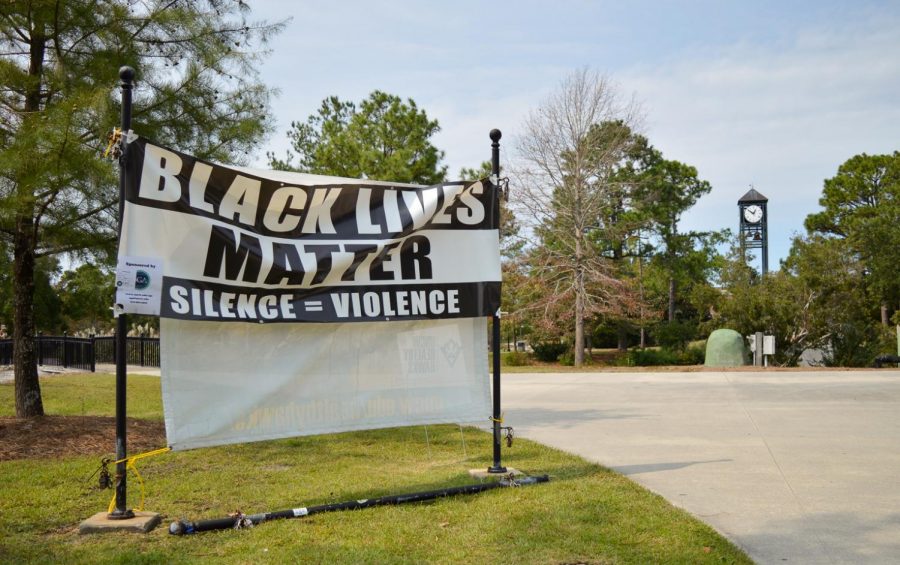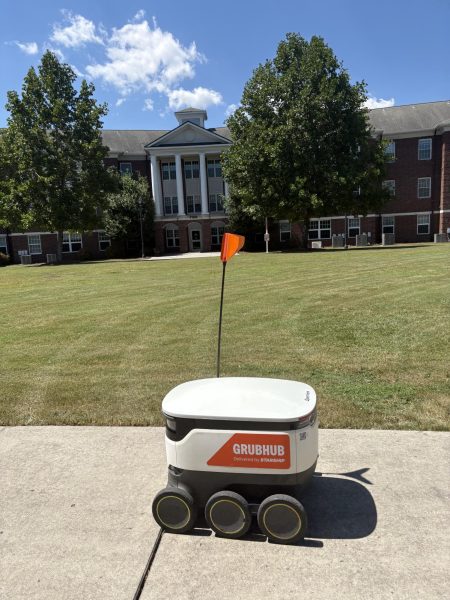UNCW’s demographic data reflects a struggle to diversify the student population
As UNC Wilmington’s (UNCW) enrollment continues to grow, demographics among Black students have remained relatively stagnant and between 2016 and 2019 they saw a decrease.
The total enrollment for 2019-2020 was 17,499 according to that year’s Common Data Sets. Total enrollment for 2018-2019 was 16,474, and for 2017-2018 it was 16,487.
“The Common Data Set (CDS) provides answers to many frequently asked questions, statistics and other descriptive information about students, faculty, instructional programs and student services available at UNCW. Many institutions voluntarily complete the CDS each year to improve compatibility of data,” according to UNCW’s Institutional Research and Planning page.
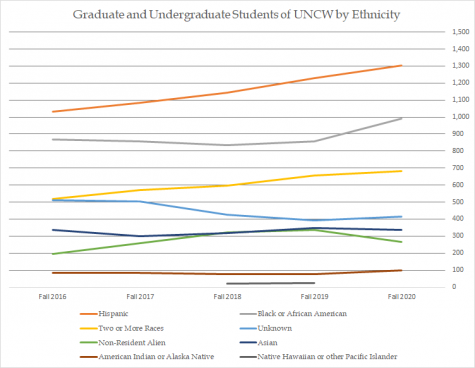
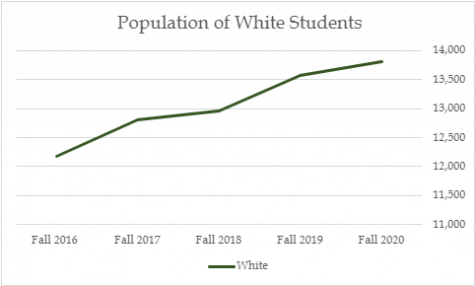
Essentially the CDS reports the demographics and diversity of UNCW.
“The name is actually what it means,” said Andy Mauk, Associate Provost for Institutional Research and Planning. “It’s a set of common definitions that the institution, sort of, agreed to provide because they’re basically frequently asked questions. They’re meant to be sort of quick glances for people like you all, or OUR or people that have data questions. So, sort of the common frequently asked questions.”
According to Mauk, all of this data is self-reported.
“The category “2 or More Races” makes some trend analysis challenging when looking at trends of one race because students can choose multiple boxes and get put in the “2 or More Races” category,” wrote James Winebrake, Provost and Vice Chancellor for Academic Affairs, who has a doctorate in energy management and policy.
When it comes to the demographics related to diversity, the number of Black students enrolled at UNCW has slowly decreased and or remained stagnant in the past three academic years despite Chancellor Jose V. Sartarelli’s goals to increase enrollment and diversity.
“Under his leadership, UNCW is focused on diversity and globalization, ethics and integrity and excellence and innovation,” per his biography page on UNCW’s website.
Since becoming Chancellor, Sartarelli helped UNCW achieve a record enrollment number of nearly 17,500 for the fall of 2019.
“I do not believe the Chancellor has kept his promise on making UNCW an inclusive and diverse place,” wrote Breonte’ Scarboro, a UNCW senior. “I can not tell you the first step he has made to start this process. What still has me heated is when he sent out an email stating the BLM banners were going to go into an art gallery. Being a person of color and seeing those banners every day made me feel like, ‘oh this university cares about its black students and people’.”
Overall the number of diverse (degree and non-degree seeking non-white) students at UNCW has slowly begun to increase, from 3,211 in 2017-2018, 3,239 in 2018-2019 to 3,299 in 2019-2020.
However, in 2017-2018, 650 Black or African American, non-Hispanic students were enrolled at UNCW. That number dropped to 611 in 2018-2019 and then again down to 596 in 2019-2020.
The only other demographic to also see a decrease in enrollment is American Indian or Alaska Native, non-Hispanic students. From 66 in 2017-2018, 56 in 2018-2019 and down to 51 in 2019-2020.
“You know they’re always trying to increase the numbers, but it’s hard to determine, in terms of recruitment, how many students that admissions has actually touched in the recruitment process versus how many actually commit to come and that’s a formula that the people in admissions would know,” Donyell Roseboro, Interim Chief Diversity Officer, who has a doctorate in Curriculum & Teaching/Cultural Studies.
But why did the university see a decrease in these populations and what does this mean for diversity at UNCW?
“I look at what are our peer institutions doing,” said Lauren Scott, Interim Director of Admissions. “This past year, NC A&T increased enrollment by 3-4% in first-year students. So if a historically black college and university in our own home state is increasing their enrollment, is that affecting us?
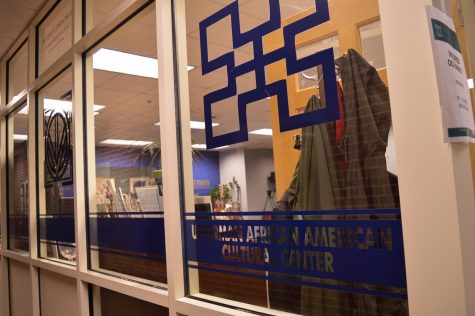
Photo by Kaylin Damico
“While I can’t draw every conclusion and say, this is exactly why those numbers went down, for me, it’s a combination of things. It’s what are our peer institutions doing across the state and historically black colleges and universities?”
For some prospective students, stellar academic programs offered by UNCW are the core reasons they apply.
“I knew I was going to attend a predominately white institution when I applied,” wrote Scarboro. “It did not affect my decision in the beginning because I knew I was going to mostly be in the theatre department…The school itself lacks the ability to include everyone. If they did not have a great theatre program, hands down I would not have attended UNCW.”
Some ways the university is trying to increase the numbers of Black or African American students is by increasing access and becoming more intentional with interactions they have with prospective students.
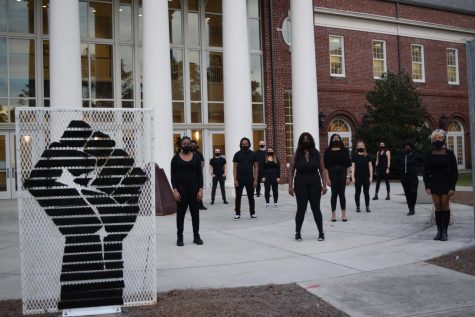
“We actually call a lot of our students specifically, we target our first-generation and lower-income students, because if they miss out on the application process, they miss out on some financial aid,” said Fred Holding, Director of Financial Aid. “So that’s something that we do, that’s pretty intentional. And we definitely collaborate with admissions. When we’re discussing things about the feedback that we get from year to year from students and what they say, we always just try to address that and that usually results in doing more outreach, so more to create access for students however we can.”
While the 2020-2021 CDS has not been released, according to the Fall Enrollment: 5-Year Trend dashboard, the enrollment for Black and African American students was back up this year to 991.
“I remember when I first came to school orientation,” wrote Scarboro. “I counted how many Black people I saw in the gym. It was probably right at a handful of African Americans. I was shocked because I thought more African Americans would attend UNCW. Another shocker is when I arrived in the theatre department, it was only a handful of us there as well. I asked myself “where are all the black people?”



